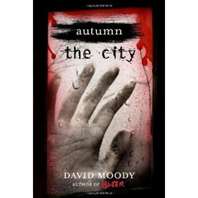Okay, I'm hard on Skepchick (and last time I criticized them I was a little bit hasty), but for real it's one of my favourite sites. Still, something Rebecca Watson said in her post asking people to please stop making calendars bothered me a little bit:
3. Sending women to large conferences isn’t that great of a cause. This is something that I’ve debated mentioning here, because I know Skepchick has continued to support scholarship funds like the very successful one Surly Amy has run, but one of the things that annoyed me about the Skepchick Calendars was handing over thousands and thousands of dollars every year to the JREF for tickets for women to go to The Amazing Meeting in Las Vegas, and not really seeing much benefit in return. Yes, I got to meet some great women. Yes, we increased the total percentage of women in the audience at that one conference. Yes, the women I sent had a wonderful vacation in Vegas. But did they really learn anything? Did it help them feel more connected to the skeptical community? Did they go home and get involved in their local skeptical group? I have no idea. I asked many of them to write me an essay on how they benefited from the scholarship they got, and I don’t recall ever actually getting one.What got me is what if I were one of the women who'd received such a scholarship, reading this paragraph. How would I feel?
At various points in my life, I've struggled financially. There have been times, both as a child and as an adult, that I've lived in a hotel and had no where else to go. The first few years after I joined rugby, I didn't have enough money to participate in the road trips, so the club paid my way. At times, different people have offered me favours and/or items that I otherwise would have had to do without. A friend got me a couch when she realized that I had no furniture. People bought me drinks when they knew I had no money. I've been the recipient of "charity" in various forms.
The worst thing about charity is the assumption that the person giving the charity -deserves- something in return. This isn't to say that I didn't feel gratitude, or that I would have loved to show my appreciation in some way. But being poor is hard. Everything about it is hard. It's basically one giant slog through worry: worry about rent, worry about bills, worry about food, worry about clothes, worry about transportation, worry about appearances, worry about heat, worry about cold, worry about people and/or animals who depend on you.
When things are good, and I'm not worried about all of those things, I have the freedom to make a choice. You offer to pay for my dinner, and I can decide for myself if I can afford to pay you back next time, or if I can make you a card, or if I have the emotional energy to listen to you complain for two hours straight, and then I can refuse, or negotiate terms.
When things are bad, I can't negotiate. I don't have the brain power to assess the value of what's being given (because for you, $10, for me, it's a MEAL and a host of worries put off until tomorrow). I'm over a barrel. ANY expectation that I give something back is a type of coercion, because I'm not in a position to negotiate.
I'm making a hash of this post, because this sort of thing really, really gets to me. Ugh.
*
I can understand wanting to make the best use of your resources. I can understand wanting the feedback from where your resources went so that you can assess how effective they are.
But if you have a program in place meant to help people in financial need, you have to understand that by loading extra conditions and expectations along with the "gift" or scholarship, you're placing a greater burden on the people you're trying to help.
If I had been a recipient of a scholarship and saw a comment like Rebecca's, I would have felt ashamed. I would have felt the crushing weight of shame about my poverty. I would have felt anger that even after all this time, by accepting one trip to a conference, there are still expectations. I might have felt used.
The frustrating thing about this is that this point doesn't even have anything to do with calendars. Another frustrating thing is that I'm terrible at articulating my frustration here. I'm sure Rebecca didn't intend to hurt any of the people who received that scholarship, I'm sure she didn't intend to make financial hardship appear to be associated with ingratitude. But that's how it appeared to me.
I gotta go have myself a think.


